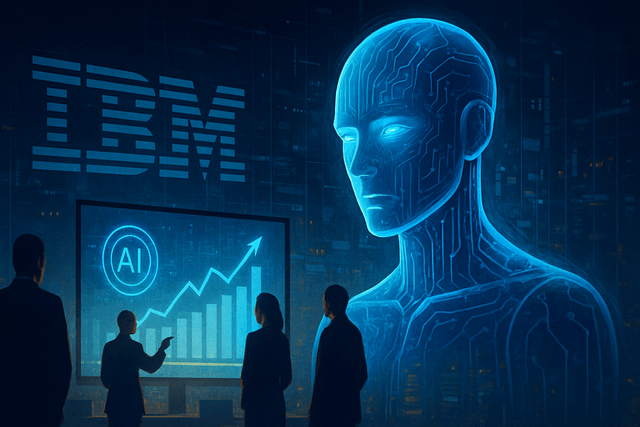Autonomous AI agents are emerging as 2025's transformative technology, shifting focus from large language models to systems capable of performing tasks with minimal human intervention.
According to IBM's recent research conducted with Morning Consult, 99% of developers building AI applications for enterprise are exploring or developing AI agents. This overwhelming interest confirms industry predictions that 2025 is indeed becoming "the year of the agent."
The impact is expected to be substantial, with surveyed executives anticipating AI-enabled workflows to grow dramatically from just 3% today to 25% by the end of 2025. Among organizations already adopting an "AI-first" approach, more than half attribute recent revenue growth (52%) and operating margin improvements (54%) to their AI initiatives.
"We see more clients looking at agentic AI as the key to help them move past incremental productivity gains and actually gain business value from AI, especially when applied in their core processes like supply chain and HR," explains Francesco Brenna, VP & Senior Partner at IBM Consulting.
The primary benefits driving adoption include improved decision-making (69%), cost reduction through automation (67%), competitive advantage (47%), enhanced employee experience (44%), and improved talent retention (42%).
However, significant challenges remain. Organizations cite concerns around data privacy and governance (49%), trust issues (46%), and skills shortages (42%) as key barriers. Many enterprises also struggle with ROI justification for their AI investments, with only 25% of surveyed organizations reporting that their AI initiatives achieved expected returns.
The landscape is rapidly evolving from experimentation to implementation. In 2024, 30% of executives reported primarily experimenting with AI in low-risk, non-core functions. For 2025, a major shift is expected, with 46% planning to scale AI by optimizing existing processes and 44% using it to innovate, while only 6% will still be in the experimentation phase.
"At the same time, scaling these systems will need strong compliance frameworks to keep things running smoothly without sacrificing accountability," warns Vyoma Gajjar, an IBM AI expert. "2025 might be the year we go from experiments to large-scale adoption, and I can't wait to see how companies balance speed with responsibility."
As organizations prepare for this transition, IBM recommends focusing on enterprise readiness, data quality, and robust AI governance to maximize the potential of AI agents while mitigating risks.

